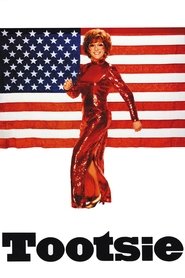— Taxi... Taxi...! TAXI!
Tootsie is both sure-footed and open-ended. In what was going to be the last speech in the movie, Michael responds to an autograph seeker who asks, “Are you anybody?” with “Am I anybody? Me? Are you kidding? I’ve been a woman, an old man, a prince of Denmark! I’ve been Romeo and Cyrano! I’ve been Willy Loman! Am I anybody? I’m everybody! I’m an actor, man!” Pollack was right to cut the speech. The movie says it all.
— Michael Sragow (Criterion)
Just as the protagonist has developed a dual identity, Julie becomes someone else when she’s out in the country, stripped of the pretentions and complications of her life as a soap star.[…]
“I’m just not well adjusted enough,” Julie tells Dorothy after she rejects her pass once they return to the city. Dorothy leans in for a kiss only after Julie laments that the limitations of their friendship leave her feeling a sense of lack: “It’s as if I want something that I know I just can’t have.” More heartache, misrecognition, and rejection for all ensue as the film winds to its comedic climax. But when I watch the film, those moments marked as “mistakes,” as scenes of misunderstanding, present themselves to me as openings: as cracks in the veneer of normalcy through which my own queer desires might be echoed.
— Karen Tongson (Criterion)
[Tootsie's] approach could be almost offensively presumptuous and self-pitying, akin to the sentiments of any white dudes who claim to understand the wills of the persecuted, but Hoffman and Pollack are (usually) aware of the troubling limitations of that subtext. Ultimately, Michael has no idea what life as a woman is like, and the film doesn’t pretend otherwise, though his simultaneous empowerment and humbling as Dorothy provides him as much vicarious exposure to female life as any possible experience probably could. But it also weirdly reduces Dorothy to politicize her too much, as she’s stunningly, eccentrically unique—the result of a dialogue between a wronged man and a wronged man’s vision of a wronged woman.[…]
Hoffman [archieves] remarkable physical effects, such as differentiating between when Michael looks at a woman and when Dorothy does (or in pointedly refusing to differentiate). Or in offhandedly delivering a line that displays a heartbreakingly astute understanding of the melancholy of aging, lonely women: When Dorothy’s told that some men like the mustache she must hide, she says that the problem is that she doesn’t like the men who like that.
[…]
Tootsie is really a character study disguised as a farce, a wandering lonely-hearts movie that’s rendered with an acute eye for the odd quotidian detail […]. The movie is so shaggy it barely has a third act, and the Michael/Dorothy ruse isn’t so much resolved as forgotten, and the already toothless gender politics are nulled by the storybook coda.
— Chuck Bowen (Slant Magazine)

